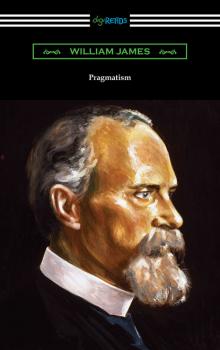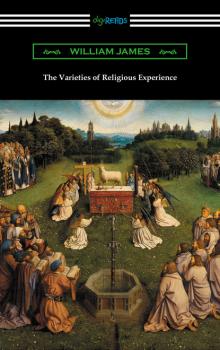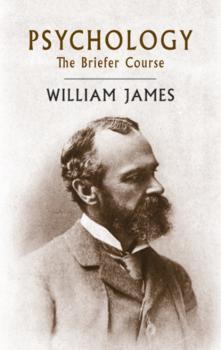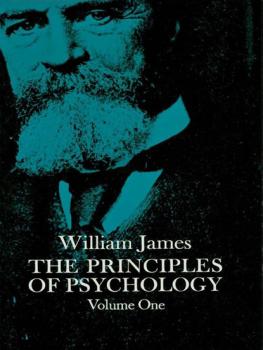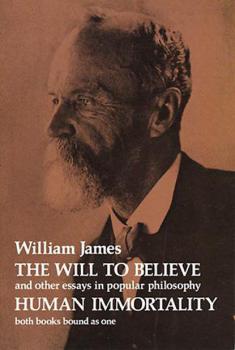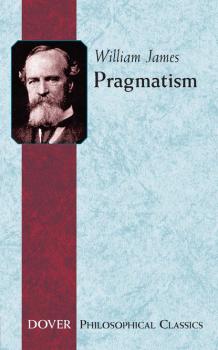ТОП просматриваемых книг сайта:
William James
Список книг автора William JamesАннотация
Brother of novelist Henry James and godson of eminent philosopher, essayist and poet Ralph Waldo Emerson, William James (1842-1910) gained notoriety for the monumental contributions he made in the field of Psychology, particularly in the areas of education, religion, mysticism and pragmatism. James was a founder of The American Society for Psychological Research, and continued to write and lecture after his retirement from a thirty-two-year tenure at Harvard University. His 1907 publication of «Pragmatism», in which he promoted his philosophical doctrine on what he called radical empiricism, was subject to both praise and criticism. As a result, he published a sequel called «The Meaning of Truth» in 1909 in an effort to clarify his arguments toward objective truth. These two works, among James' last, are part of his vast repertoire of works considered to be some of the most important in American philosophical writing.
Аннотация
Originally delivered as a set of lectures at Manchester College «On the Present Situation in Philosophy,» «A Pluralistic Universe» is a classic of philosophical thought. In it, William James explores the ideas of many philosophical contemporaries. Most notably James explores the idea of Gustav Fechner that «the whole universe in its different spans and wave-lengths, exclusions and developments, is everywhere alive and conscious.» Put more simply James believes that from the myriad consciousnesses of the world comes a «consciousness of still wider scope.» It is this idea that forms the basis for the philosophy of Pluralism.
Аннотация
William James, who has been called the “father of American psychology”, was one of the most influential thinkers of the 19th century. Along with Charles Sanders Peirce, William James established the school of thought known as “Pragmatism”, a philosophy which rejected the idea that language and thought exists simply to represent nature, but rather it must be useful in transacting with nature, in predicting outcomes, and solving problems. First published in 1907, William James’ “Pragmatism” presents an excellent introduction into the philosophical theory of the same name. This work collects together a series of eight lectures delivered at the Lowell Institute in Boston in November and December, 1906, and in January, 1907, at Columbia University, in New York. In these lectures William James presents his argument of the philosophical dilemmas that the Pragmatist philosophy is meant to address. Pragmatism’s application to religion, which James expounded upon in his monumental work “The Varieties of Religious Experience”, is considered, as well as its application to Humanism and other metaphysical concerns. This short work provides an excellent exposition of one of the most important philosophical movements of the last part of the 19th and first part of the 20th century. This edition includes a biographical afterword.
Аннотация
First published in 1902, “The Varieties of Religious Experience” is William James’ philosophical and psychological examination of the nature of religion in human civilization. Based on James’s own Gifford Lectures given at the University of Edinburgh in Scotland between 1901 and 1902, James argues that “Scientific theories are organically conditioned just as much as religious emotions are; and if we only knew the facts intimately enough, we should doubtless see ‘the liver’ determining the dicta of the sturdy atheist as decisively as it does those of the Methodist under conviction anxious about his soul. When it alters in one way the blood that percolates it, we get the Methodist, when in another way, we get the atheist form of mind.” William James’ examination of the psychology of religion in this work arose out of a perceived need for the academic study of the subject. The concepts put forth here would later be developed into James’ philosophy of pragmatism, which he expounded upon in his 1907 work “Pragmatism”. “The Varieties of Religious Experience” has been acknowledged as a monumental work of modern psychology ever since its original publication. This edition includes a biographical afterword.
Аннотация
Condensed and reworked from James's monumental Principles of Psychology, this classic text examines habit; stream of consciousness; self and the sense of personal identity; discrimination and association; the sense of time; memory; perception; imagination; reasoning; emotions, instincts; the will and voluntary acts; and much more. This edition omits the outdated first nine chapters.
Аннотация
This is the first inexpensive edition of the complete Long Course in Principles of Psychology, one of the great classics of modern Western literature and science and the source of the ripest thoughts of America’s most important philosopher. As such, it should not be confused with the many abridgements that omit key sections.The book presents lucid descriptions of human mental activity, with detailed considerations of the stream of thought, consciousness, time perception, memory, imagination, emotions, reason, abnormal phenomena, and similar topics. In its course it takes into account the work of Berkeley, Binet, Bradley, Darwin, Descartes, Fechner, Galton, Green, Helmholtz, Herbart, Hume, Janet, Kant, Lange, Lotze, Locke, Mill, Royce, Schopenhauer, Spinoza, Wundt, and scores of others. It examines contrasting interpretations of mental phenomena, treating introspective analysis, philosophical interpretations, and experimental research.It remains unsurpassed today as a brilliantly written survey of William James’ timeless view of psychology.
Аннотация
This volume contains the complete texts of two books by America's most important psychologist and philosopher. Easy to understand, yet brilliant and penetrating, the books were written specifically for laymen and they are still stimulating reading for readers concerned with important questions of belief in an age of science.In the essays, under the heading The Will to Believe, James discusses, first, the interrelationships of belief, will, and intellect, examining such questions as: How does man believe? How do intellectual considerations color belief? How much of a role do irrational elements play even in rigorously logical thought? Chance versus determinism, free will versus fate, pluralism versus monism are discussed in succeeding sections. James also covers psychical research, Hegelianism, and Spencer's philosophy.Human Immortality: Two Supposed Objections to the Doctrine, reprinted here from the corrected second edition, examines the questions of survival after death, and provides an unusual philosophical rebuttal to the theory that thought and personality necessarily die with the brain.
Аннотация
A profoundly influential figure in American psychology, William James (1842–1910) was also a philosopher of note, who used Charles S. Peirce's theories of pragmatism as a basis for his own conception of that influential philosophy. For James, this meant an emphasis on «radical empiricism» and the concept that the meaning of any idea — philosophical, political, social, or otherwise — has validity only in terms of its experiential and practical consequences. James propounded his theories of pragmatism in this book, one of the most important in American philosophy. In a sense, he wished to test competing systems of thought in the «marketplace of actual experience» to determine their validity, i.e. whether adopting a particular philosophical theory or way of looking at the world makes an actual difference in individual conduct or in how we perceive and react to the varieties of experience. In these pages, James not only makes a strong case for his own ideas, but mounts a powerful attack against the transcendental and rationalist tradition.For anyone interested in William James or the history of American philosophical thought, Pragmatism is an essential and thought provoking reference. In this handy, inexpensive edition, it will challenge and stimulate any thinking person.
Аннотация
"The Varieties of Religious Experience" is William James's philosophical and psychological examination of the nature of religion in human civilization. Based on James's own Gifford Lectures given at the University of Edinburgh in Scotland between 1901 and 1902, James argues that «Scientific theories are organically conditioned just as much as religious emotions are; and if we only knew the facts intimately enough, we should doubtless see 'the liver' determining the dicta of the sturdy atheist as decisively as it does those of the Methodist under conviction anxious about his soul. When it alters in one way the blood that percolates it, we get the Methodist, when in another way, we get the atheist form of mind.»
Аннотация
William James' «Pragmatism» is a collection of lectures that were delivered at the Lowell Institute in Boston in November and December, 1906, and in January, 1907, at Columbia University, in New York. «Pragmatism» outlines the principles of the pragmatic philosophical movement, which was greatly furthered by the writings and speeches of William James. In this book you will find the following lectures: I. The Present Dilemma in Philosophy, II. What Pragmatism Means, III. Some Metaphysical Problems Pragmatically Considered, IV. The One and the Many, V. Pragmatism and Common Sense, VI. Pragmatism's Conception of Truth, VII. Pragmatism and Humanism, and VIII. Pragmatism and Religion.



